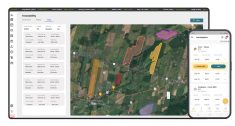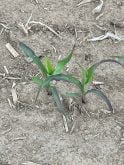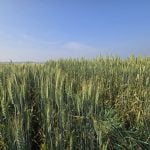Canadian grain and oilseed growers who’d had to stop using insecticides such as Matador, Silencer and Voliam in 2023 for feed grain crops can expect to be able to use them again starting this spring.
Health Canada’s Pest Management Regulatory Agency (PMRA) on Monday (Feb. 3) announced a round of public consultations, to run until April 16, on its proposed new maximum residue limits (MRLs) and other regulatory revisions for lambda-cyhalothrin.
Ag chem companies including Syngenta, Adama and Sharda CropChem had filed applications with the PMRA asking it to reconsider the re-evaluation that banned lambda-cy’s use on crops destined for feed.
Read Also

Dissolving eartags could make pig traceability easier
A dissolving eartag for market hogs, called Clean Trace could reduce processing challenges and enable more individual management of pigs.
PMRA said Monday it’s “proposing acceptability” of those applications to re-instate the livestock feed uses for the labels of Voliam Xpress, Matador 120EC, Warrior Insecticide, Silencer 120EC, Zivata and Labamba.
The proposed new MRLs would apply to grain and meal from treated canola, cereals, field corn, soybeans and pulse crops, Syngenta said in a release. A company spokesperson said Monday via email that grain and meal from those crops treated with Matador 120EC and Voliam Xpress can be fed to livestock effective immediately.
Lambda-cy products are used to help growers control pests such as grasshoppers, flea beetles, lygus, cutworms, among many others.
PMRA’s new proposal would end a regulatory impasse many growers considered unworkable when first imposed in 2023. Many crops, when first seeded in spring, are intended for the food processing market but end up headed to the feed trough when conditions during the growing season lead to a downgrade.
“The final decision for lambda-cyhalothrin indicated that the re-instatement of the livestock feed uses has value and the human health and environmental risks associated with these uses are acceptable,” the agency said in its proposal Monday.
Syngenta hailed the PMRA’s decision in its release Feb. 3 — but emphasized that while feeding of grain from lambda-cy treated crops has been reinstated, the grazing of treated crops or feeding other parts of treated crops “remains prohibited.”
PMRA’s new MRL proposal will also cancel the product’s use on apple and peach crops, as well as its use by “specific handheld application methods.” It will also update these products’ label requirements for personal protective equipment, Syngenta noted.
“This update, based on rigorous scientific evidence, meets a crucial need for both growers and the broader agricultural industry,” Anna Shulkin, Syngenta Canada’s head for regulatory and stewardship matters, said in Monday’s release. “These products remain valuable tools for Canadian agriculture when used responsibly and in accordance with label directions.”













